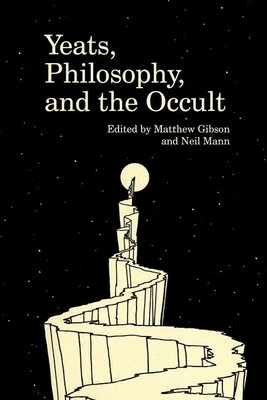
- We will send in 10–14 business days.
- Publisher: Clemson University Press
- ISBN-10: 1942954255
- ISBN-13: 9781942954255
- Format: 15 x 22.6 x 3.3 cm, kieti viršeliai
- Language: English
- SAVE -10% with code: EXTRA
Yeats, Philosophy, and the Occult (e-book) (used book) | bookbook.eu
Reviews
Description
Yeats, Philosophy, and the Occult is a collection of essays examining the thought of the Irish poet W. B. Yeats and particularly his philosophical reading and explorations of older systems of thought, where philosophy, mysticism, and the supernatural blend. It opens with a broad survey of the current state of Yeats scholarship, which also includes an examination of Yeats's poetic practice through a manuscript of the original core of a poem that became a work of philosophical thought and occult lore, "The Phases of the Moon. " The following essay examines an area where spiritualism, eugenic theory, and criminology cross paths in the writings of Cesare Lombroso, and Yeats's response to his work. The third paper considers Yeats's debts to the East, especially Buddhist and Hindu thought, while the fourth looks at his ideas about the dream-state, the nature of reality, and contact with the dead. The fifth essay explores Yeats's understanding of the concept of the Great Year from
classical astronomy and philosophy, and its role in the system of his work A Vision, and the sixth paper studies that work's theory of "contemporaneous periods" affecting each other across history in the light of Oswald Spengler's The Decline of the West. The seventh essay evaluates Yeats's reading of Berkeley and his critics' appreciation (or lack of it) of how he responds to Berkeley's idealism. The book as a whole explores how Yeats's mind and thought relate to his poetry, drama, and prose, and how his reading informs all of them.
EXTRA 10 % discount with code: EXTRA
The promotion ends in 22d.15:03:14
The discount code is valid when purchasing from 10 €. Discounts do not stack.
- Publisher: Clemson University Press
- ISBN-10: 1942954255
- ISBN-13: 9781942954255
- Format: 15 x 22.6 x 3.3 cm, kieti viršeliai
- Language: English English
Yeats, Philosophy, and the Occult is a collection of essays examining the thought of the Irish poet W. B. Yeats and particularly his philosophical reading and explorations of older systems of thought, where philosophy, mysticism, and the supernatural blend. It opens with a broad survey of the current state of Yeats scholarship, which also includes an examination of Yeats's poetic practice through a manuscript of the original core of a poem that became a work of philosophical thought and occult lore, "The Phases of the Moon. " The following essay examines an area where spiritualism, eugenic theory, and criminology cross paths in the writings of Cesare Lombroso, and Yeats's response to his work. The third paper considers Yeats's debts to the East, especially Buddhist and Hindu thought, while the fourth looks at his ideas about the dream-state, the nature of reality, and contact with the dead. The fifth essay explores Yeats's understanding of the concept of the Great Year from
classical astronomy and philosophy, and its role in the system of his work A Vision, and the sixth paper studies that work's theory of "contemporaneous periods" affecting each other across history in the light of Oswald Spengler's The Decline of the West. The seventh essay evaluates Yeats's reading of Berkeley and his critics' appreciation (or lack of it) of how he responds to Berkeley's idealism. The book as a whole explores how Yeats's mind and thought relate to his poetry, drama, and prose, and how his reading informs all of them.


Reviews